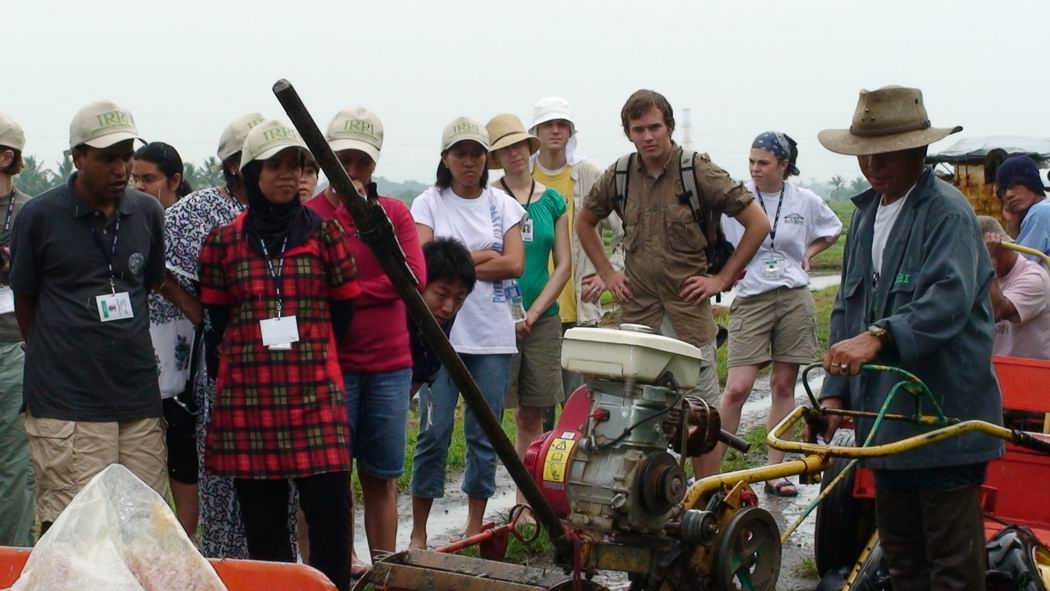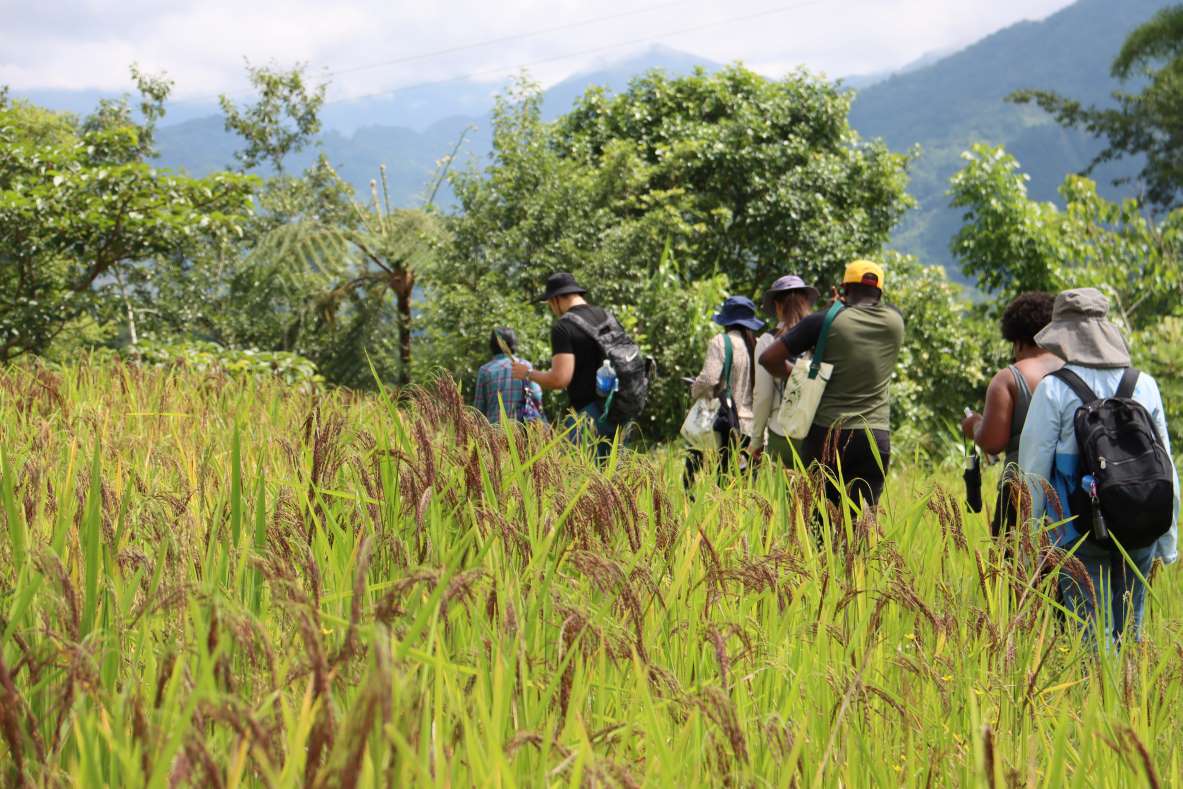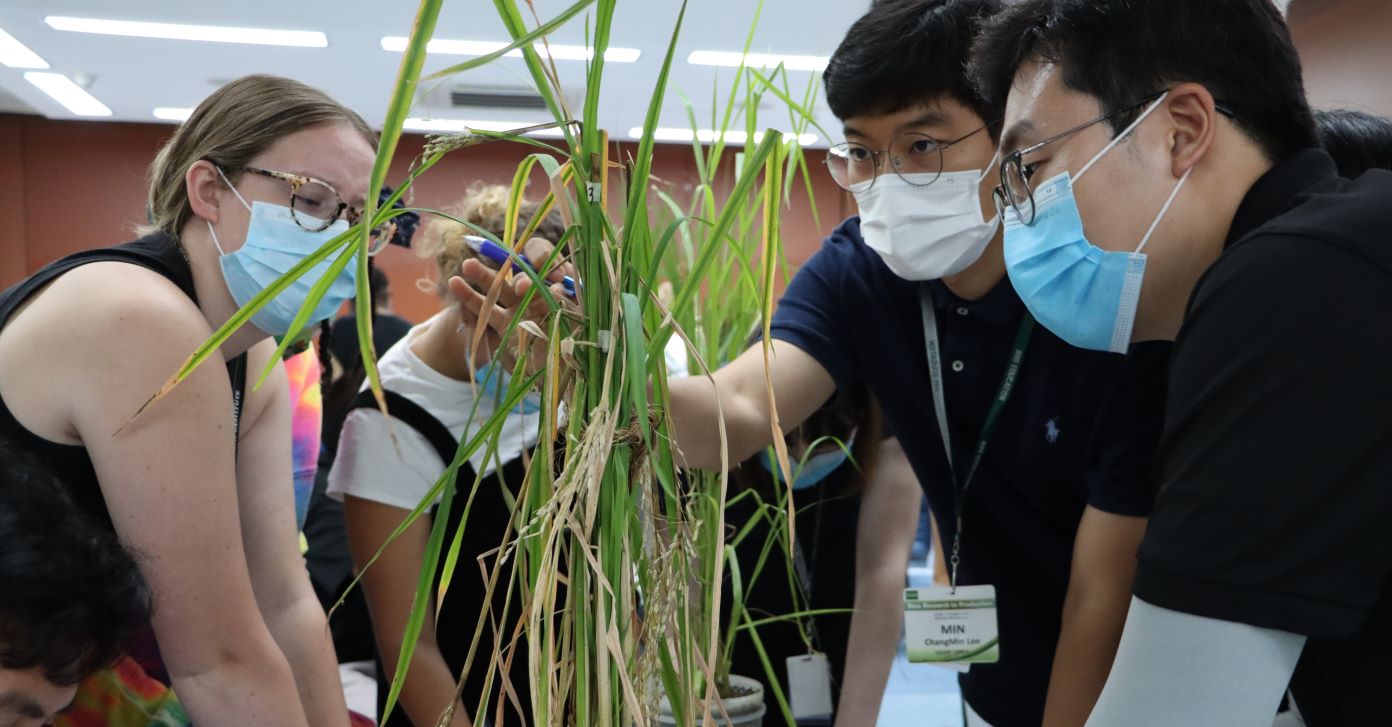Rice is the world’s most important crop, feeding over half of the world’s population and serving as a vital source of employment and livelihood. However, now more than ever, the rice sector faces multiple threats: the rapidly growing population, unstable economies, natural resource limitations, and the inevitable adverse effects of climate change. The need to develop well-trained professionals, especially in the environmental sciences, the social sciences, and agribusiness, has never been more important.
In the pursuit of training the next generation of rice scientists, IRRI Education, the educational arm of the International Rice Research Institute (IRRI), has been spearheading a remarkable initiative for the last 17 years, the Rice: Research to Production Training Course or RR2P.
RR2P was conceptualized through the collaborative efforts of IRRI scientists, Dr. Robert Zeigler, Dr. Hei Leung, and Dr. Noel Magor and Cornell University scientist, Dr. Susan McCouch, with the initial aim to open young scientists to the challenges and opportunities of rice science to meet the global challenges of food security and to improve the livelihoods of resource-poor rice producers.

In 2007, the first iteration of the training took place at the IRRI headquarters in Los Baños, Philippines with support from the U.S. National Science Foundation (NSF) and the U.K.’s Gatsby Charitable Foundation. Since then, the RR2P course has been annually implemented, participated by a varied group of undergraduate and graduate students, and researchers.
The course follows an intensive three-week schedule composed of instructor-led lectures, open discussions, asynchronous sessions, and hands-on field exercises facilitated by respective experts in IRRI. Aside from these, participants also have the opportunity to visit public and private agricultural institutions in the Philippines and participate in a range of cultural experiences, such as a visit to the Banaue Rice Terraces. At the end of the training, participants will have gained an appreciation of the changes and challenges in the rice industry from production to market. Additionally, they will have a deeper understanding of the research issues of IRRI and its partners, advancements in rice breeding, and structuring effective collaboration within the international research community.
Since its inception, the RR2P program has empowered over 300 individuals with the essential skills, knowledge, and networks needed to address the pressing challenges confronting the global rice industry. These participants have formed a loose association of training alumni, fostering ongoing engagement and collaboration. Beyond personal and professional development, they have spearheaded initiatives benefiting broader communities. In 2014, the alumni association completed a successful fundraising campaign to procure and donate a mini hydrotiller to the Bocos Farmers Association in the Banaue rice terrace region—a community which many past RR2P participants have engaged with1. These sustained collaborations underscore the fulfillment of one of the RR2P program’s core objectives: providing an international network for its participants to effect positive change.
One of the former participants, Dr. Royette Santos, reminisced about his journey with the training, “As a fresh graduate of BS in Agriculture way back in 2015, I was eager to expand my knowledge and practical skills in rice production. Recognizing the significance of rice as a staple food for millions, I saw this training as a golden opportunity to gain a deep understanding of rice cultivation, from basic principles to cutting-edge research”.
“The training equipped me with a comprehensive understanding of rice production, including breeding advancements, socio-economic and environmental considerations, and market dynamics. Additionally, the emphasis on building effective collaborations within the international research community has enhanced my networking skills and opened doors to collaborative opportunities”.

When asked about how RR2P has impacted his career path and professional growth, Dr. Santos shared that “it has broadened my career opportunities within the agriculture sector, enabling me to contribute more effectively to research and development initiatives related to rice production. Moreover, the training has boosted my confidence as an agronomist, enhancing my professional growth and opening doors to international collaborations”.
After completing the training, Dr. Santos worked at the Philippine Rice Research Institute (PhilRice) before pursuing his graduate studies in Agronomy at UPLB and participating in a youth exchange program for Science hosted by the University of Tokyo, Japan. Having recently earned his PhD degree, he is currently involved in IRRI as an Agronomist Consultant, working under the Climate-Resilient Farming System Unit of the Sustainable Impact through Rice-based Systems Department.
Another exemplary alumnus from the training is Dr. Diane Wang, who described the experience as “eye-opening”. She recalled: “In the lab back in the U.S., we worked on rice primarily using genetics approaches. During RR2P, I was able to place our more upstream research into a broader, global context and learn about the social and economic sides. It was also a really great opportunity to learn about different cultures in addition to rice science”.
Like Dr. Santos, Dr. Wang holds the course in high regard in terms of its impact on her career path and professional growth. “Attending this course and being able to stay on at IRRI several weeks longer ultimately influenced my decision to apply to graduate school and integrate international work into my PhD research. I ended up studying rice genomics, and now rice physiology and modeling are important components to my lab’s research portfolio,” said Dr. Wang.
She is currently an assistant professor in agronomy in Purdue University and is co-leading the Plant Science for Global Food Security (PSGFS), a project funded by the NSF that provides hands-on research experience and training program in international agriculture and plant science for undergraduates. “This initiative began as a way for me to ‘pay it forward’ to provide a unique international experience for bright young scientists interested broadly in global food security and the role of plant science, especially those who would not have otherwise had a chance to do something like a study abroad program. A positive international experience for students at a very early career stage has the potential to greatly impact career decisions, as it did mine”, Dr. Wang shared.
Through the PSGFS, undergraduate students at Purdue University and its five partner U.S. institutions are recruited each year to travel to IRRI, where they will participate in the RR2P for three weeks and conduct hands-on research alongside IRRI scientists and their teams to evaluate diverse rice genetic materials for another three weeks. The project started in 2021 and since then recruited students have been sharing how the experience has been eye-opening and rewarding234. Dr. Wang also shared that a number of these students are applying to or are already pursuing higher education in the field of plant science.
Dr. Amelia Henry, Senior Scientist II – Stress Physiology and Research Unit Leader – Traits for Challenged Environments, is currently the program’s training coordinator, alongside IRRI scientist Dr. Parthiban Prakash. On the highlights of the course, Dr. Henry shares, “For us at IRRI, we really look forward to hosting the RR2P course each year as it is a chance to interact with a group of very enthusiastic young scientists and to share some of the stories that inspired us to go into rice research as a career. Over time, the RR2P course has evolved to include more agronomic components in addition to its strong emphasis on rice genetic resources, which broadens the participants’ exposure to the components involved in rice production. In addition to the enriching course topics and in-field activities, I would say the interactions with other course participants is always a highlight, given that the group typically includes participants from different countries – all interested in learning about rice from their own perspectives”.
Over many years of implementation, the program may have undergone a few changes, however, the goal remains the same. Through the RR2P course, IRRI aims to develop a new generation of scientists who are well-networked in the international community and inspire them to engage deeper, consider a career in plant science, and eventually contribute to addressing global food security challenges.
Applications for the 2024 RR2P are currently underway. Interested applicants may visit bit.ly/IERR2P for more information or email education@irri.org


